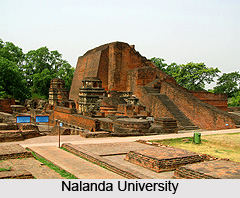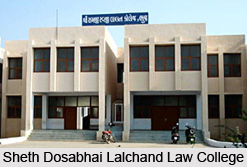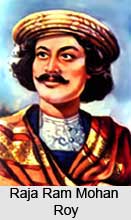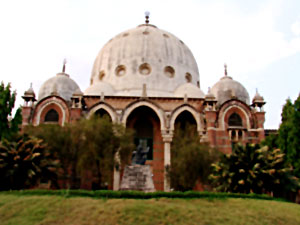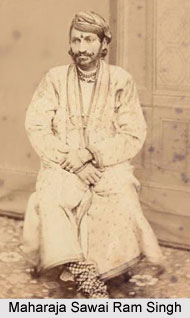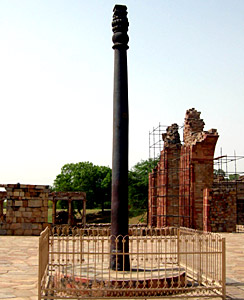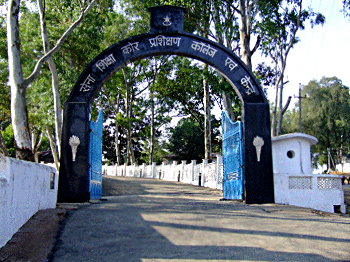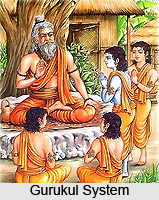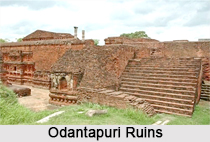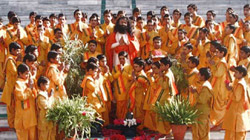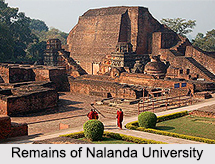 Education in India is a fundamental right, as established by the Indian Constitution. It is provided by both public and private sectors. Education has always received a special emphasis since ancient times, although it was restricted to certain classes back then. It has witnessed great evolution. The techniques and subjects of education in India changed greatly owing to the changing influences on the country.
Education in India is a fundamental right, as established by the Indian Constitution. It is provided by both public and private sectors. Education has always received a special emphasis since ancient times, although it was restricted to certain classes back then. It has witnessed great evolution. The techniques and subjects of education in India changed greatly owing to the changing influences on the country.
History of Education in India
History of Education in India relates to the system of education during the presence of different dynasties in India. India has been an ancient seat of learning and has often been visited by travelers, who came to study in the ancient Indian institutions. Education flourished at Nalanda, Takshashila and Vikramshila universities. In fact, the Gurukul system of education is one of the oldest educational institutions in the world. The Mughal period saw the inception of Madrasahs in the education system in India. During the British rule in India in the 18th century, education was widespread. English was the medium of instruction for imparting western education introduced by the British in India. The introduction of English education in India benefited a handful of the population and this gave rise to the western educated middle class intelligentsia,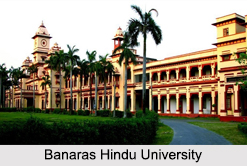 who had organized the Indian masses during the struggle for freedom. The British had established many colleges in India, such as the St. Xavier`s College, Sydenham College, Wilson College and Elphinstone College. It is important to note that development of education in India has taken place. Education in Modern India is imparted in numerous schools, colleges, universities and such other institutions.
who had organized the Indian masses during the struggle for freedom. The British had established many colleges in India, such as the St. Xavier`s College, Sydenham College, Wilson College and Elphinstone College. It is important to note that development of education in India has taken place. Education in Modern India is imparted in numerous schools, colleges, universities and such other institutions.
Education System in India
The Government of India has taken up the responsibility of ensuring universal elementary education (primary and upper primary) for all children between the age six and fourteen. Primary or elementary education is the foundation of the education system in India. Children are given 8 years of schooling, during this period. After completing elementary education, students enter the secondary level. There are broadly four stages of school education in India namely, primary, upper primary, secondary and higher secondary (or high schools). From class one to five is the primary school in which students belonging to the age group of 6-11 years are admitted. Upper primary and secondary school starts from class six and continues to class ten. Students in these classes generally belong to the age range 11-15 years. The higher secondary coincides with classes eleven and twelve. Students in these classes are generally sixteen or seventeen years of age.
At undergraduate and postgraduate levels, higher education is imparted in India. At this stage, a student chooses a subject in which he/ she is intending to pursue career and enters colleges and universities. The students have to give a lot of effort to be successful in this stage. They are taught the skills and knowledge needed to work in different professional environments. The students also get into different professional courses at this level and the courses help assume a better position in a company.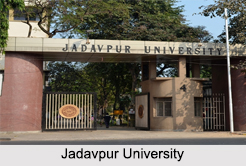 Higher education or university education in India covers different areas of three basic streams, that is, Science, Humanities and Commerce. Most of the universities are administered by the states, however, there are important universities called central universities, which are maintained by the Union Government. As per the rankings for the year 2017, the top five modern Indian universities are Indian Institute of Science (Bengaluru), Jawaharlal Nehru University (New Delhi), Banaras Hindu University (Varanasi), Jawaharlal Nehru Centre for Advanced Scientific Research (Bengaluru) and Jadavpur University (Kolkata). Private sector has entered the area of higher education and this is creating greater opportunities for students in India. The organized education system in India has been producing well educated people for the past several years.
Higher education or university education in India covers different areas of three basic streams, that is, Science, Humanities and Commerce. Most of the universities are administered by the states, however, there are important universities called central universities, which are maintained by the Union Government. As per the rankings for the year 2017, the top five modern Indian universities are Indian Institute of Science (Bengaluru), Jawaharlal Nehru University (New Delhi), Banaras Hindu University (Varanasi), Jawaharlal Nehru Centre for Advanced Scientific Research (Bengaluru) and Jadavpur University (Kolkata). Private sector has entered the area of higher education and this is creating greater opportunities for students in India. The organized education system in India has been producing well educated people for the past several years.
Challenges of Education in India
Education in India faces great challenges and is still at the stage of evolution in terms of its system. One of the prime challenges is the dissatisfaction amongst the youth related to the teachers, who are unable to satisfy the youth with their methods and knowledge. Another challenge is the lack of discipline in education centers. Political influences contribute greatly to this problem. Poverty is a challenge as the rising cost of education is making it unattainable for the people belonging to low financial strata of India. Reservation in Indian education has also created barriers in the Indian education system providing advantages to certain classes, while ignoring others. Corruption has seeped into the education system in India. Privatization is a crucial issue and a stark difference can be observed in the methods and administration of public and private organizations, both having their own pros and cons.
